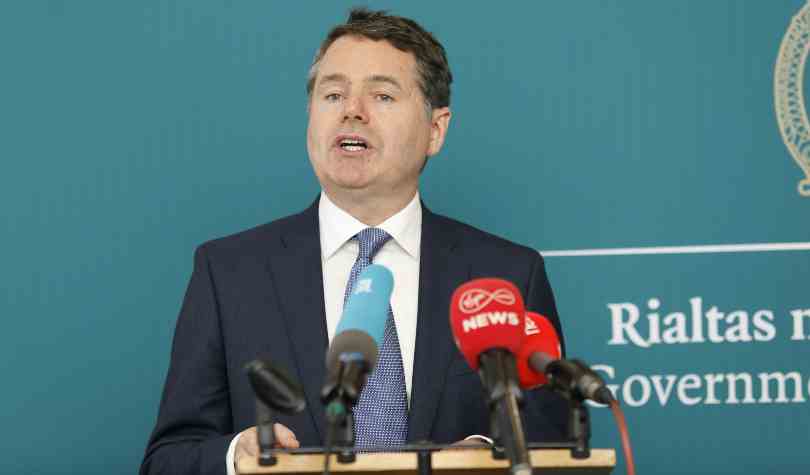Tax clearance and a coronavirus-related fall in turnover of at least 30% are among the criteria required to access the Employment Wage Subsidy Scheme (EWSS), which will replace the Temporary Wage Subsidy Scheme (TWSS) from 1 September 2020.
The EWSS provides a flat-rate subsidy to qualifying employers based on the numbers of paid and eligible employees on their payroll. This differs from the TWSS, which makes a payment to eligible employees via their employers.
Joe Howley, collector-general with Revenue, stated: “To qualify for the EWSS, an employer must be able to demonstrate that their business will experience a 30% reduction in turnover or orders between 1 July and 31 December 2020 and that the decline is caused by Covid-19.
“Additionally, and unlike TWSS, the employer must have tax clearance to be eligible to join the EWSS and remain tax clear to continue receiving the EWSS benefits.”
Tax clearance is confirmation from Revenue that the tax affairs of the relevant business are in order. To qualify, the business and any persons or entities connected to the business must be compliant with all obligations under tax legislation in relation to the filing of tax returns and payment of taxes.
Typically, tax clearance is only required by businesses applying for or renewing certain licences, or to access certain grants and schemes. This means that many businesses may need to apply for tax clearance for the first time in order to be eligible for the EWSS scheme.
Revenue’s records indicate that approximately 16,000 employers who registered for the TWSS do not currently hold tax clearance and may have never previously applied.
Howley is urging employers who intend to avail of the EWSS to apply without delay for tax clearance in order to be ready to receive it from September. “An application for tax clearance can be made quickly and easily online through the eTax clearance service in ROS. Successful applications will be confirmed on screen in ‘real-time’,” said Howley.
“Similarly any business who does not meet the requirements for tax clearance will be shown the reasons why the application was not successful. Once the outstanding matters have been addressed, the business can then reapply and get tax clearance.”
Outstanding Tax Debt
For any business that may have such outstanding matters to resolve, Howley highlighted the measures contained in the July Stimulus package that provide additional opportunities for businesses to pay outstanding tax debt.
“Once you have filed all tax returns that are due, any Covid-19 related tax debts will be parked under the Covid-19 debt warehousing scheme. Additionally and importantl, if you are not in a position to pay older, non-Covid-19 tax debts, you can still obtain tax clearance if you enter a phased payment arrangement.”
Howley pointed out that a reduced interest rate of 3% is available to employers who agree to a phased payment arrangement for non Covid-19-related tax debts before 30 September 2020.
“The reduced rate applies from the date the arrangement is agreed, is available across all tax types and compares to a standard rate of 8% or 10% per annum that would otherwise apply to a phased payment arrangement.
“The opportunity for a business with non Covid-19-related tax debts to put an arrangement in place that will allow it to pay those debts over a reasonable period of time, at a very much reduced rate of interest and at the same time obtain tax clearance, one of the key eligibility criteria for EWSS, is very important.
“Businesses should take the important and practical steps now of filing any outstanding tax returns and paying or making arrangements to pay any non Covid-19-related tax debt.
“This will mean they will qualify for tax clearance and, provided all other conditions are met, will have access to the key financial support available to them under the Employment Wage Subsidy Scheme.”
EWSS Payment Levels
The level of subsidy the employer will receive is per paid employee as follows:
Employee Gross Weekly Wages
Less than €151.50: Nil subsidy
From €151.50 to €202.99: €151.50 subsidy
More than € 203 and less than € 1,462: € 203 subsidy
More than € 1,462: Nil subsidy
Employers are required to operate and make their payroll submissions as normal and Revenue will calculate the subsidy payable based on these submissions on a monthly basis on the 15th of the following month. The subsidy will be paid to the employer as soon as practicable thereafter, according to Revenue.
While employers are required to report and apply the full rates of employer and employee PRSI, on receipt of payroll submissions, Revenue will apply a reduced rate of 0.5% employer PRSI in respect of employees for whom a subsidy is payable i.e. where gross weekly wage is between € 151.50 and € 1,462.
Monthly employer PRSI liabilities will be revised accordingly by Revenue and any resulting PRSI credit will be available for offset against future employer PAYE/PRSI liabilities.
Employers eligible for EWSS who were either ineligible for TWSS, or who had employee’s ineligible for TWSS, can claim EWSS in respect of these employees for pay dates from 1 July 2020 onwards. Revenue will pay the subsidy in these circumstances as soon as practicable after 15 September 2020.
From 18 August onwards, companies or their payroll provider will be able to register for the EWSS through Revenue’s Online Service (ROS).
Legislation for the EWSS excludes company directors from benefiting for the scheme, but finance minister Paschal Donohoe (pictured) has promised that he will work with Revenue to implement an administrative workaround so that proprietary directors will not be excluded from EWSS.
• Information and detailed guidance on the operation of the EWSS is available here.









